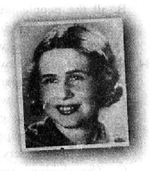Accidents happen, but when they destroy the delicate balance of nature and cause the whole world to suffer, they become disasters, and we should do all we can to prevent them from happening again.
Bhopal chemical leak, December 1984, Bhopal, India
An explosion in the Union Carbide chemical plant in Bhopal, India, released a deadly gas called methyl (甲基) isocyanate(异氰盐酸), which is used to make pesticides. The gas formed a cloud that killed 2500 people; another 50000- 100000 people became ill. Trees and plants in the area became yellow and brittle. The explosion was caused by a mechanical failure that was not noticed in time to stop it.
Exxon Valdez oil spill, March 1989, Alaska, U.S.
On March 24, 1989, 11 million gallons of crude oil spilled into Prince William Sound from the tanker Exxon Valdez when its hull hit a reef and tore open. The oil, which is not yet cleaned up after billions of dollars have been spent and the millions of birds, fish, and other wildlife have died, was caused by human error and could have been avoided.
Chernobyl, April 1986, USSR
At 1:23 A.M. on Saturday, April 26, 1986, the reactor blew at nuclear power plant in Chernobyl, ripping open the core, blowing the roof off the building, starting more than 30 fires, and allowing radioactive material to leak into the air. Some 31 people were killed and 200 people were treated for radiation poisoning. Still at risk are 135000 people from the 179 villages within 20 miles, of the plant who were exposed to the radiation before being evacuated. Glaring violations of safety rules were at the bottom of this tragic event.
Love Canal, 1953, New York, U.S.
Love Canal, a small town in upstate New York near Niagara Falls, was destroyed by waste from chemical plants. Beginning in 1947, chemical companies could legally dump their waste products into the canal. The area developed a foul smell, trees lost their bark, and leaves fell throughout the year. A health survey found that the drinking water contained excessive levels of 82 industrial chemicals, 7 of which were thought to cause cancer. The people of Love Canal had an unusually high rate of cancer and birth defects. Eventually, many of the houses had to be abandoned. Today, the town has been partly cleaned up and some families have moved back to the area.
Three Mile Island, 1979, Pennsylvania, U.S.
On March 28, 1979, the worst accident in U.S. nuclear reactor history occurred at the Three Mile Island power station, near Harrisburg, Pennsylvania. No one was killed, and very little radioactivity was released into the air when coolant (the fluid that keeps a machine cool) escaped from the reactor core due to a combination of mechanical failure and human error. After 10 years and $ 1 billion in cleanup costs, the lower extremes of the reactor are still so radioactive that workers must use remote - control equipment to remove the remaining fragment of fuel core.
小题1:This passage mainly discusses_______.
| A.accidents that affected many living things |
| B.air pollution |
| C.water pollution |
| D.what people are doing to prevent environmental disasters |
小题2:You can infer from the passage that the Bhopal Chemical leak_______.
| A.happen at night | B.was the worst accident in the history of India |
| C.caused more deaths than sicknesses | D.could have been avoided |
小题3: It can be inferred from the passage that the people in Love Canal_______.
| A.didn’t know that chemical companies were dumping waste products into the canal |
| B.didn’t know that their water was becoming dangerous to drink |
| C.tried to stop companies from dumping their waste products into the canal |
| D.didn’t mind that chemical companies were dumping waste products into the canal |
小题4:The best title for the article is ________. A. Accidents in Some Countries B. Disasters in Some Countries
C. Our Earth Is Out of Control D How to Prevent Accidents from Happening Again


 had sailed round the Cape of Good Hope(好望角), up the western coast of Africa, and finally to England. It had covered(航行) fifteen thousand miles — more than half of the distance round the world.
had sailed round the Cape of Good Hope(好望角), up the western coast of Africa, and finally to England. It had covered(航行) fifteen thousand miles — more than half of the distance round the world. s unexpected, the Chinese were warmly welcomed. The boat carried goods such as silk and tea as well as a number of gifts from the Emperor of China for the Queen of England.
s unexpected, the Chinese were warmly welcomed. The boat carried goods such as silk and tea as well as a number of gifts from the Emperor of China for the Queen of England. London proved once again that the Chinese could sail to distant countries in the world.
London proved once again that the Chinese could sail to distant countries in the world. d tea
d tea s to prove that a long time ago the Chinese .
s to prove that a long time ago the Chinese .